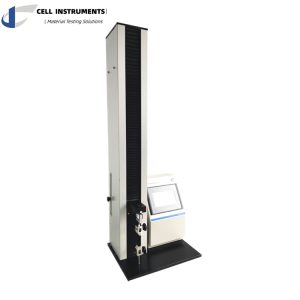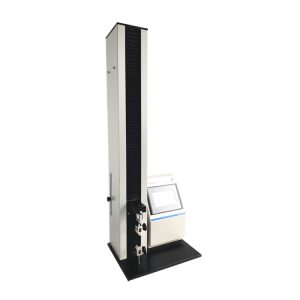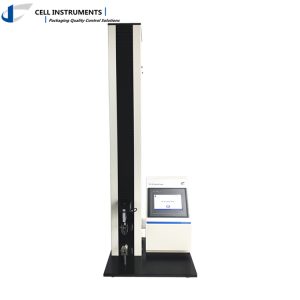ASTM D882
Application Materials
ASTM D882 applies to thin plastic sheeting, typically less than 1.0 mm (0.04 in.) in thickness. This includes films and flexible plastics used in packaging, medical devices, and various industrial applications.
Test Process
- Sample Preparation: Cut specimens from the plastic sheeting, ensuring they are free from defects. Typical specimen dimensions are 25.4 mm (1 in.) wide and at least 150 mm (6 in.) long.
- Conditioning: Condition the specimens at a standard temperature and humidity (typically 23°C and 50% relative humidity) for at least 40 hours prior to testing.
- Testing: Perform the test using a tensile testing machine. Mount the specimen in the grips, ensuring proper alignment to avoid slippage or uneven stress distribution.
- Test Execution: Apply the tensile force at a constant rate of grip separation until the specimen breaks. Record the force and elongation.
Test Result Interpretation
- Tensile Strength: The maximum tensile stress the material can withstand.
- Elongation at Break: The extent to which the material stretches before breaking, expressed as a percentage of the original length.
- Modulus of Elasticity: The ratio of stress to strain in the elastic deformation phase, indicating the material’s stiffness.
Test Significance
- Quality Control: Ensures materials meet specific strength and flexibility requirements for their intended use.
- Material Comparison: Allows for the comparison of different plastic materials or different batches of the same material.
- Design Validation: Assists in validating the design and durability of products that use these materials.
Instrument Requirements

- Tensile Testing Machine: Must be capable of applying the necessary force and measuring elongation accurately.
- Grips: Should be suitable for the material being tested to prevent slippage and ensure even force distribution.
- Environment Control: Equipment to maintain standard temperature and humidity conditions for specimen conditioning.
Precautions:
- Specimen Preparation: Ensure specimens are cut accurately and without defects.
- Machine Calibration: Regularly calibrate the tensile testing machine to ensure accurate results.
- Alignment: Properly align specimens in the grips to avoid uneven stress distribution.
Showing all 4 results
-
180° Peeling Tester
Tensile Tester TST-01
-
180° Peeling Tester
TST-01 Tensile Tester




